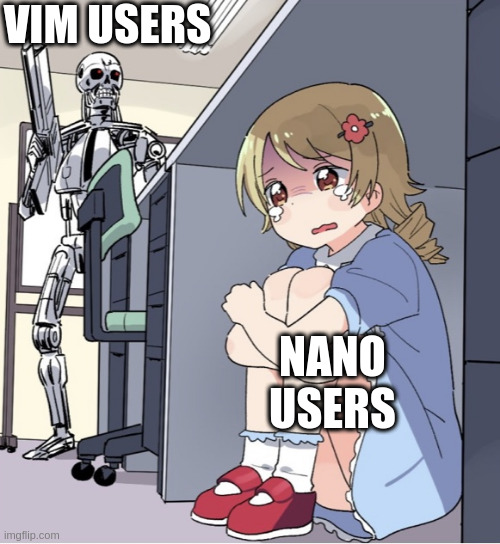this post was submitted on 02 Sep 2024
792 points (93.3% liked)
Linux
47976 readers
1053 users here now
From Wikipedia, the free encyclopedia
Linux is a family of open source Unix-like operating systems based on the Linux kernel, an operating system kernel first released on September 17, 1991 by Linus Torvalds. Linux is typically packaged in a Linux distribution (or distro for short).
Distributions include the Linux kernel and supporting system software and libraries, many of which are provided by the GNU Project. Many Linux distributions use the word "Linux" in their name, but the Free Software Foundation uses the name GNU/Linux to emphasize the importance of GNU software, causing some controversy.
Rules
- Posts must be relevant to operating systems running the Linux kernel. GNU/Linux or otherwise.
- No misinformation
- No NSFW content
- No hate speech, bigotry, etc
Related Communities
Community icon by Alpár-Etele Méder, licensed under CC BY 3.0
founded 5 years ago
MODERATORS
you are viewing a single comment's thread
view the rest of the comments
view the rest of the comments

Vim (or emacs, or any other advanced text editor) is much easier to use than nano when you need to do something more complex than type couple of lines.
And how often does that happen in the real world?
VIM may have been a very useful tool 20 or 30 years ago, but today it's nothing else but a tool for one's sense of superiority. It's the vinyl of editors.
If you have to type that much code in a terminal, your infrastructure is outdated. Simple as that.
I actually use VIM bindings in PyCharm, slightly cursed but actually works really well and meshes fairly nicely with the other IDE shortcuts. Being able to use it in any terminal is a nice bonus.